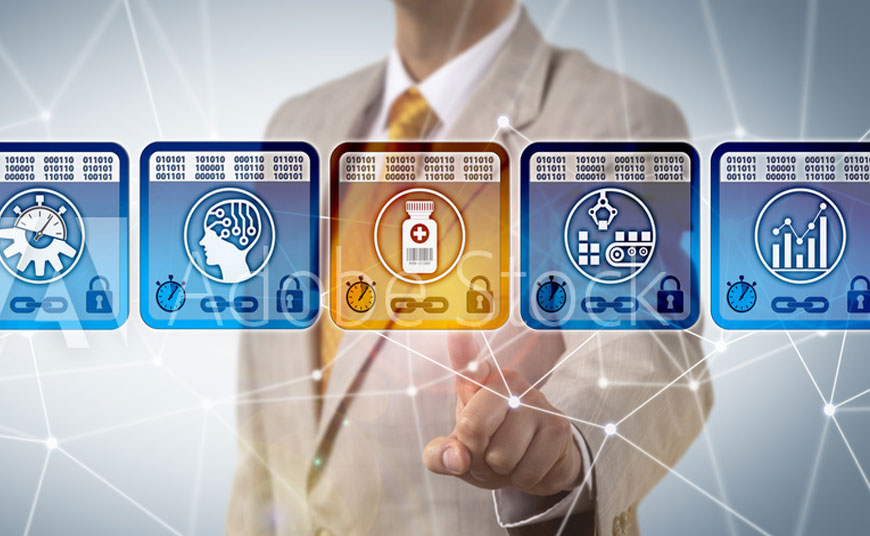Blockchain has exploded in recent years, most notably with the introduction of cryptocurrency. However, blockchain technology is much more than a digital currency. With extremely versatile applications, blockchain can provide a host of benefits to other industries from banking to travel, healthcare, and more. The possibilities are endless. Below are some of the industries that can benefit from blockchain the most.
What is Blockchain?
The blockchain is essentially a decentralized database that enables sensitive information to be transferred directly without the need for approval from a third-party company. The network is built from a chain of computers that need to approve a ‘block’ or transaction before it is recorded and added to the chain. The identities of people involved remain hidden, although every transaction is recorded on a public ledger meaning it provides complete transparency, accuracy, and can reduce fraud.
While initially created for the popular cryptocurrency, Bitcoin, blockchain technology has the potential to disrupt many different industries and provide a more efficient, secure, and transparent approach. In fact, a report conducted by the World Economic Forum predicts that by 2027 ten percent of the global GDP will be held in blockchain-related technology. With a fundamental shift to the mainstream, blockchain looks set to play a significant role in our everyday lives. Although, which industries can we expect to benefit the most from the decentralized blockchain system?
Banking
There are a lot of issues financial companies face on a regular basis from identity theft, security and the efficiency of transactions. Blockchain is poised to cause significant disruption to the financial services industry. Big banks are already investing heavily in blockchain technology, including Barclay’s, Goldman Sachs, Wells Fargo, and HSBC, among others. With faster transactions, higher levels of transparency, and lower transaction costs, blockchain presents significant benefits for both financial institutions and its customers.
Voting
The current voting process is a contentious subject, with voter fraud and rigged elections making headlines and causing controversy around the world. Paper ballot voting booths are expensive, time-consuming, and voting records can be difficult to track and verify on a large scale.
Utilising blockchain technology could assist in making elections more democratic and fair. A decentralized voting system can help to register and identify voters while ensuring only legitimate votes are counted to prevent rigged polls. Votes can be collected via a mobile platform, allowing individuals to vote from the comfort of their home. Follow My Vote is a company leading the way with blockchain voting.
Travel
The travel industry continually relies on information passing from one intermediary to another: customers to travel agents, travel agents to airlines and hotels, etc. With sensitive information passing through many different companies, security and fraud become a major concern, especially with international payments occurring. Chargebacks in the travel industry are on the rise and already twice the average of other sectors, making transaction verification essential. Blockchain can play a significant role, improving trust between intermediaries, storing personal information and ensuring secure and traceable payments.
Other industries that are heavily impacted by fraud will also benefit. Casino operators can let out a sigh of relief as there’s no chargebacks when making payments with a digital currency – it’s the same as paying with cash. This happens when a credit card holder disputes the charges on their card and gets a refund. With crypto, it’s not possible.
Supply Chain and Logistics
Managing a supply chain is incredibly complex– with many stages, locations, payments, and parties involved. Blockchain technology can increase the efficiency and improve transparency across the entire chain from recording containers to tracking purchase orders and shipments, and verifying certifications (e.g. organic or fair trade product).
Blockchain can even be used by consumers to verify where their food was grown and produced. US giant, Walmart, has filed a patent for a blockchain-based package delivery tracking tool that would record surrounding the contents, environment conditions, location, and more. The company already uses blockchain to track pork sourced from China and record packaging and use-by date information.
Healthcare
The American healthcare market is the largest in the world at approximately $3.3 trillion. However, the industry is plagued with legacy systems and inefficient processes. Patient data and medical records are at high risk of hackers due to outdated infrastructure.
A decentralized blockchain system will ensure medical records are kept safe and shared with relevant parties only. Blockchain can be used to protect sensitive data on a large scale, while also improving how the data is managed and assist in reducing costs and improving operational efficiency. Patientory is an excellent example of a healthcare platform that is utilizing blockchain technology. The company allows users to build a patient profile and manage their health history in a secure environment.
The Impact of Blockchain
Many companies are now starting to realize the benefits and making the shift to improve security, efficiency, and trust. It begs the question, which industry will be next?
